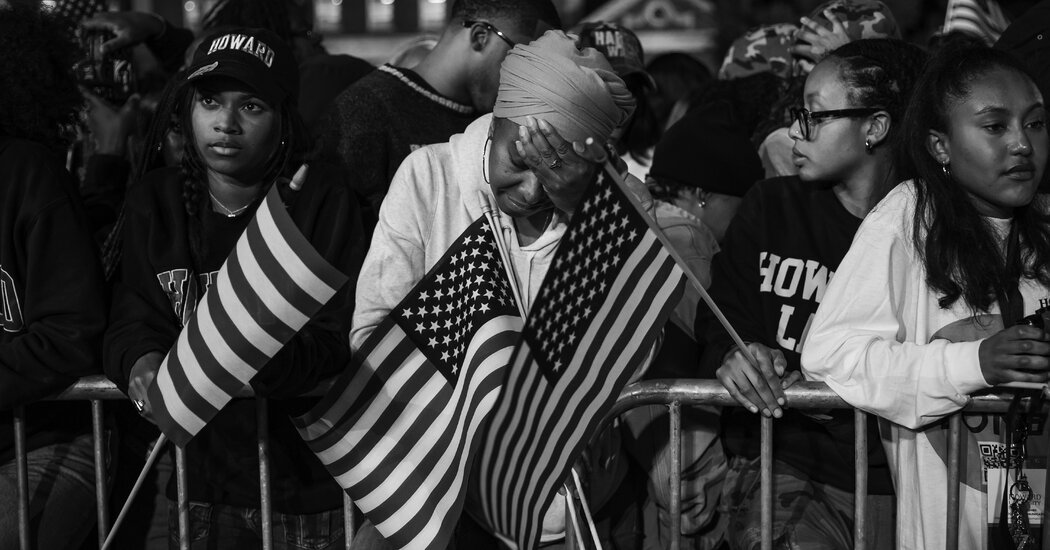
I have always been audacious about Black women’s political aspirations. When I was 15 years old I decided to become a local pageant queen, a Carousel Princess, for our Thanksgiving Parade. It was an uncharacteristic choice. I was an oratory and student government kind of girl.
I don’t remember much about the pageant except the question portion, in which I was asked, “What do you want to be in the future?” I intended to be “the first Black female Supreme Court justice.” The emcee smiled indulgently. I stared defiantly.
Some 30 years later, Ketanji Brown Jackson took my Supreme Court justice job. And this week Vice President Kamala Harris almost became the first Black female president. Our policy differences aside, her ascendancy to the top of her party should have felt like the realization of my childhood dreams. Instead, for weeks I have felt isolated in my ennui.
As it turns out, Donald Trump was harder to vanquish than so many of us hoped. He won. And today it feels like his brand of identity politics is more audacious than my youthful dreams about a Black female president.
The Monday night before Election Day, I drove to my nearby alma mater, North Carolina Central University, with an anxiety headache. In the words of Alice Walker, I went searching for my mother’s garden — a connection to the ancestral continuation of Black women’s survival and resilience. The campus has a polling place, perhaps in part because I helped organize one my sophomore year in college. It is where I cast my first vote for president.
This historically Black college campus in Durham, N.C. — a Southern city that once had a “Black Wall Street” — is full of the ghosts of voter suppression and dogged Black resilience. It is also home to the ghost of my young, ambitious, audacious self.

